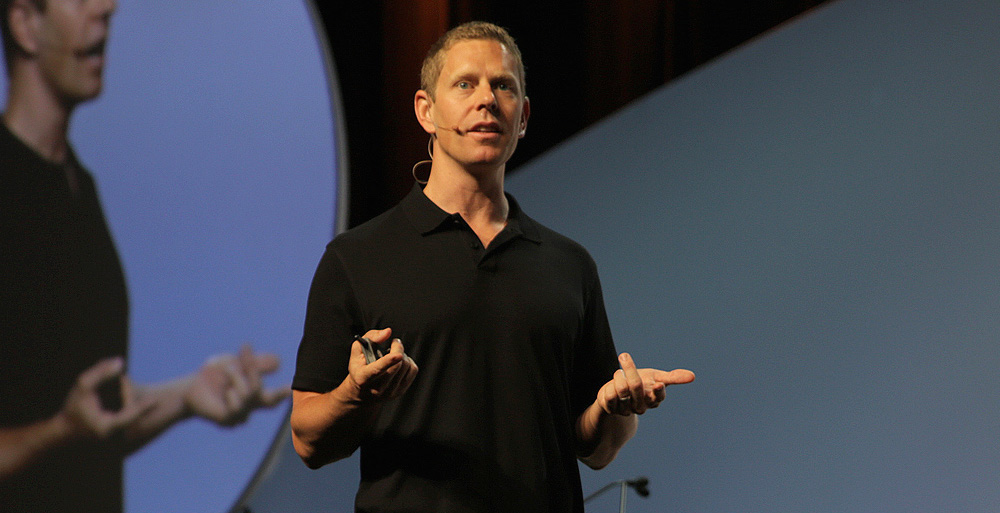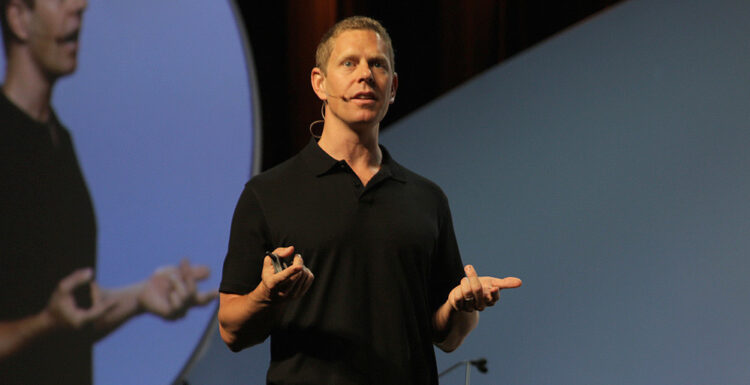
It’s that time again. November is coming, as is the annual New York eHealth Collaborative’s Digital Health Conference, when 850 senior-level healthcare professionals descend on the city to learn about cutting-edge innovations and to join in the conversation – or start one – as speakers from across the healthcare spectrum take to the stage to address how healthcare is being redefined through technology.
And where they tend to say and discuss things that you might not hear anywhere else.
What we always find refreshing about the conference is that the speakers aren’t necessarily the Usual Suspects. In fact, there are always at least a few who are doing things that would qualify as the definition of true genius: the ability to put together ideas in ways that no one has thought of doing before.
Sky Christopherson, for example.
Christopherson is something of an anomaly – and a ‘Wunderkind,’ according to The New York Times. He doesn’t come from the healthcare world, but he’s using what he learned from healthcare practitioners to change sports. An athlete on the U.S. Cycling Team and a member of ‘Project 96’ prior to the Atlanta Olympics, Christopherson retired after the 2000 Sydney Olympics, frustrated with the doping culture of sport that would eventually cost Lance Armstrong his Tour de France titles and disqualify the US men’s cycling team from the 2012 Olympics.
That’s not the odd part: having spent a good part of his life in training to stay in top physical condition, with all of the possible opportunities for overexertion or serious injury, who would have thought that it would be starting a technology company that would land him in the hospital?
Get lemons, make lemonade, and Christopherson will be making a rare appearance in NY where he will be speaking at the New York eHealth Collaborative Digital Health Conference, discussing how he got his health back through technology – and went on to break a world’s record.
The startup that cost him his health was Vicaso, a real estate marketing platform that he founded with wife, Tamara, another Olympian.
“It was a shock going from being an Olympic athlete, which is all about health and performance, to a startup, where it’s a badge of honor to pull all nighters, eat pizza and write code,” said Christopherson. “The first year, the company did $1.2 million in revenue. A couple of years later, I was in ambulance going to the hospital. It was from stress and poor eating.”
It was time to start paying attention to his health again. He felt inspired by Dr. Eric Topol, a practicing cardiologist who is widely credited for leading the Cleveland Clinic to become the #1 center for heart care – and a leading practitioner of digital medicine and digital health technology: monitoring brain waves, blood glucose and measuring sleep, for example. (Dr. Topol is keynoting the New YORK eHealth Collaborative Digital Health Conference this year, in fact)
“We’d had that at the Olympic training center, but we didn’t have the ability to understand how we were sleeping and recovering, as athletes. It was all numbers based. Athletes break records with numbers, and I thought, ‘This is it – this is the way to go.’ I experimented to get my health back.”
He not only started cycling again. He went on to break a world’s record in the velodrome sprint, using the digital health model inspired by Dr. Topol. The previous holder of the record, Steven Alfred, received a lifetime ban for his performance enhancing drug use.
“I saw this as an alternative to drugs – data, not doping.”.
Which led to Optimized Athlete, a personal health technology company, which he and Tamara cofounded to help support the US women’s cycling team prior to the 2012 Olympic Games. The underfunded team had become America’s hope for a cycling medal when the Lance Armstrong drug scandal hit and the top U.S. men’s professional cyclists voluntarily and very suddenly withdrew from the Games due to performance enhancing drug use.
“The odds for winning a medal was 50-1 against them – and they had a one-person staff, very little funding and ten weeks to go before the Olympics,” said the Olympian.
Christopherson went to work, utilizing technology and data, and incorporating everything from genetic testing to circulated water pads, a mattress cooler usually used to help women going through menopause. A dozen devices were used, and data was collected over 3-4 weeks before intervention.
“We need to look at human health as a whole, and how to maximize their baseline health – the way Dr. Topol had introduced it to me. Now it’s called Life Hacking.”
But it took someone with Christopherson’s background in competitive sports and his health scare, along with Dr. Topol’s expertise and experimentation, to put all of the pieces together.
In an era of professional and Olympic sports embracing a win-at-all-costs/lie-at-all-costs philosophy that fuels the use of banned substance, the question is: Is clean sport even possible? Can athletes who take a healthy, legal approach to training ever compete with those who use drugs to cheat? Sky Christopherson says, “Yes, they can!”
The women’s cycling team won silver at the Olympics – the first medal in 20 years for women track cyclists from the US. Personal Gold: The Underdog Story of London, 2012, a documentary about the team and the behind the scenes look into the genesis of OAthlete, will be released next year.
In the meantime, Christopherson will give a rare, inside look into his ground-breaking approach to digital health and training at the e-Health Conference..
“No one is connecting dots way we did.”
Genius.
Image credit: Sky Christopherson



